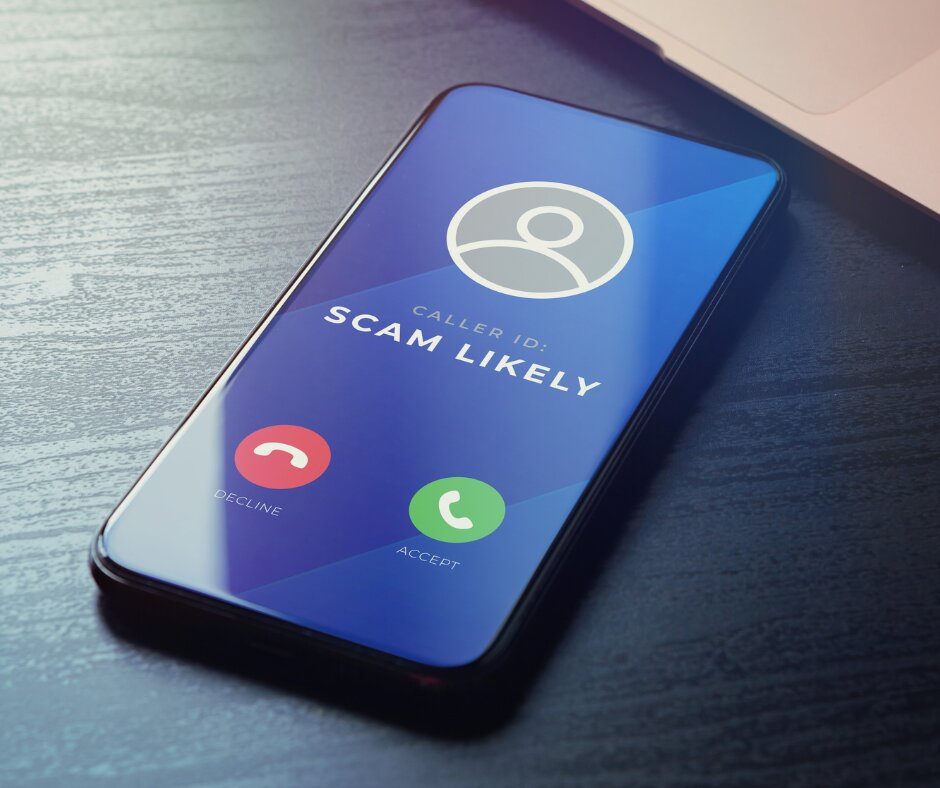 In the digital age, where technology connects us more than ever, cybercriminals have devised sophisticated methods to exploit unsuspecting individuals. One such method that has gained notoriety is vishing, a fraudulent technique that involves manipulating phone calls to deceive people and steal their personal and financial information. In this article, we will explore the world of vishing scams, how cybercriminals exploit phone calls for fraud, and ways to protect yourself from falling victim to these malicious activities.
In the digital age, where technology connects us more than ever, cybercriminals have devised sophisticated methods to exploit unsuspecting individuals. One such method that has gained notoriety is vishing, a fraudulent technique that involves manipulating phone calls to deceive people and steal their personal and financial information. In this article, we will explore the world of vishing scams, how cybercriminals exploit phone calls for fraud, and ways to protect yourself from falling victim to these malicious activities.
1. Introduction to Vishing Scams
Vishing, a combination of "voice" and "phishing," is a form of social engineering that exploits phone calls to manipulate individuals into revealing sensitive information. The scammer typically poses as a trusted entity, such as a bank representative, government official, or technical support agent, to gain the victim's trust and extract confidential data.
2. Understanding the Mechanics of Vishing
Vishing scams rely on psychological manipulation and social engineering tactics to deceive victims. The cybercriminal initiates a phone call and uses various techniques to create a sense of urgency, fear, or authority. By leveraging these emotions, they coerce individuals into providing personal information, such as passwords, Social Security numbers, or financial details.
3. Techniques Used by Vishing Scammers
Vishing scammers employ a range of techniques to deceive their targets. These include:
3.1. Caller ID Spoofing
By utilizing advanced technology, scammers can manipulate caller ID information to display a trusted organization's name or a legitimate phone number. This technique enhances the credibility of the call and increases the likelihood of the victim falling for the scam.
3.2. Impersonating Trusted Entities
Vishing scammers often impersonate reputable organizations, such as banks, credit card companies, or government agencies. They imitate the communication style and terminology used by these entities to further deceive their targets.
3.3. Urgency and Fear Tactics
Creating a sense of urgency or fear is a common strategy employed by vishing scammers. They may claim that the victim's account has been compromised, their personal information is at risk, or they will face severe consequences if they don't comply immediately.
4. Signs of a Vishing Call
Recognizing the signs of a vishing call is crucial for protecting yourself from falling victim to these scams. Here are some red flags to watch out for:
4.1. Unsolicited Calls
Vishing calls often occur out of the blue. If you receive a call from someone you weren't expecting or have no prior relationship with, exercise caution.
4.2. Requests for Personal Information
Legitimate organizations rarely ask for sensitive information over the phone. If a caller requests your Social Security number, credit card details, or passwords, be extremely skeptical.
4.3. High-pressure Tactics
Vishing scammers often employ high-pressure tactics to rush their targets into making quick decisions. They may threaten severe consequences or emphasize the need for immediate action. Be wary of such aggressive tactics.
5. Protecting Yourself from Vishing Scams
Safeguarding yourself from vishing scams requires a proactive approach. Here are essential steps to take:
5.1. Verify the Caller's Identity
Before sharing any personal information, independently verify the caller's identity. Use official contact details from the organization's website or documents and contact them directly to confirm the legitimacy of the call.
5.2. Never Share Sensitive Information
Under no circumstances should you share sensitive information, such as passwords, PINs, or financial details, over the phone unless you initiated the call and are confident in the recipient's authenticity.
5.3. Be Skeptical and Vigilant
Maintain a healthy level of skepticism and vigilance when receiving unsolicited calls. Remember that legitimate organizations will never pressure you to disclose sensitive information immediately.
6. Reporting Vishing Incidents
If you encounter a vishing attempt, it's crucial to report the incident to the appropriate authorities. Contact your local law enforcement agency, your bank or financial institution, and any relevant government agencies responsible for handling cybercrime.
7. The Legal Implications of Vishing
Vishing scams are illegal activities with severe legal consequences. Cybercriminals engaged in vishing can face significant fines and imprisonment if caught and prosecuted. Law enforcement agencies are actively working to identify and apprehend individuals involved in these fraudulent activities.
8. Industry Efforts to Combat Vishing
Various industries, including banking, telecommunications, and cybersecurity, are actively collaborating to combat vishing scams. They implement advanced technologies, conduct awareness campaigns, and enhance security measures to protect customers and educate them about potential risks.
9. Conclusion
Vishing scams pose a significant threat in the digital landscape, exploiting phone calls to deceive and defraud unsuspecting individuals. By understanding the mechanics of vishing, recognizing the techniques employed by scammers, and adopting proactive measures to protect yourself, you can minimize the risk of becoming a victim. Stay vigilant, question suspicious calls, and always prioritize your security. Please click here for more tips, tricks and robust cybersecurity solutions.



